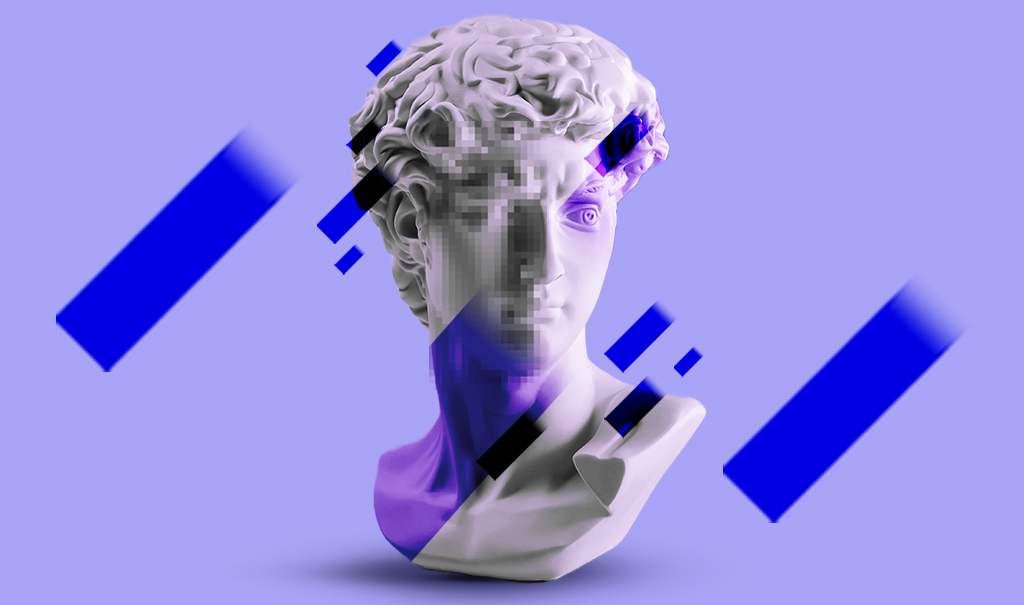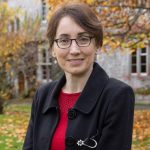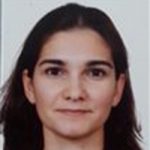September, 2023
202304Sep(Sep 4)10:0007(Sep 7)14:30Digital Humanities Bootcamp10:00 - 14:30 (7)

Event Details
Digital Humanities Bootcamp When: Monday - Thursday, September 4 - 7, 2023 Where: The American College of Greece, Gravias 6, Aghia Paraskevi campus Organized by: The American
Event Details
Digital Humanities Bootcamp
When: Monday – Thursday, September 4 – 7, 2023
Where: The American College of Greece, Gravias 6, Aghia Paraskevi campus
Organized by:
The American College of Greece
Institute for Hellenic Culture and the Liberal Arts
Center of Excellence in Food, Tourism and Leisure
In cooperation with:
University of Sheffield
Leeds Beckett University
Greek Politics Specialist Group (GPSG)
Supported by
Research England
The bootcamp is offered free of charge. Participation in all five (5) days is a pre-requisite.
Register HERE to express your interest in participating and provide a small bio along with a brief note on the reasons for joining the bootcamp. You will be informed about your participation once the committee selection completes the review of the registrations (by July 10th).
Deadline: 30 June 2023
About the bootcamp
The Digital Humanities bootcamp, promises to be a comprehensive training program, offering masterclasses and interactive seminars, for early career and permanent/non-permanent academic staff interested in the theory and practice of Digital Humanities.
The program draws on expertise from across The American College of Greece and national and international collaborators. Participants will gain insights into the possibilities of computer science-based research methods in the Digital Humanities, explore digital practices and methods that are becoming more widespread in the social sciences and humanities, and gain hands-on experience with tools and techniques.
The bootcamp aims to enhance the teaching skills of staff, foster collaborations across disciplines, and lead to projects that extend beyond the classroom and make a public impact. By showing the value of the study of Humanities and the potential of digital projects to engage and inform the wider public, the program seeks to contribute to the development of innovative research and teaching practices. The emergence of new methods and tools that allow us to gain and compute more knowledge integrating various data sources is challenging traditional research in the social sciences and humanities. At the same time, our human experiences and our ways of learning and knowing are increasingly mediated by technology. The Digital Humanities boot camp promises to offer participants the opportunity to grapple with these challenges and explore the theoretical bases and implications of digital research methods.
This will be the first Digital Humanities bootcamp aimed at permanent and non-permanent University faculty members in Greece. Training teaching staff in Digital Humanities is crucial for fostering interdisciplinary collaborations and encouraging innovative research and teaching practices. By attending the boot camp, teaching/research staff will be able to enhance their knowledge of digital research methods, gain practical experience with tools and techniques, and explore the potential of digital projects to engage and inform the wider public. This knowledge and experience can be applied in the classroom, leading to enhanced teaching, and learning outcomes for students.
Moreover, training teaching staff in Digital Humanities can lead to the development of interdisciplinary collaborations across departments and faculties. These collaborations can lead to the creation of new research projects and teaching programs that extend beyond the traditional boundaries of individual disciplines. Overall, training teaching staff in Digital Humanities is an essential step in fostering innovation and advancing research and teaching practices. The Digital Humanities boot camp offered by The American College of Greece is an excellent opportunity for teaching staff to gain the skills and knowledge necessary to engage with Digital Humanities and contribute to the development of innovative research and teaching practices.
PROGRAM
Day 1 | Monday, September 4, 2023
09:00 – 09:45 Registration
09:45 – 10:00 Welcome remarks
Panos Vlachopoulos
Vice President for Academic Affairs, Deree – The American College of Greece
Helena Maragou
Dean, School of Liberal Arts and Sciences, Deree – The American College of Greece
Eirini Karamouzi
Associate Professor of Contemporary History, Deree – The American College of Greece/University of Sheffield
10:00 – 14:30
Máirín MacCarron
Senior Lecturer in Digital Humanities/Medieval History, University College Cork
10:00-11:30 | Masterclass Lecture: Humanities Data, and Data Analysis in the Humanities
11:30-12:00 | Coffee Break
12:00-14:30 | Seminar: Network science and social network analysis
Day 2 | Tuesday, September 5, 2023
Kalliopi Zervanou
Assistant Professor, Leiden University
10:00-11:30 | Masterclass Lecture: Text Mining for Digital Humanities
11:30-12:00 | Coffee Break
12:00-14:30 | Seminar: Text Mining for Digital Humanities
Day 3 | Wednesday, September 6, 2023
Kalliopi Zervanou
Assistant Professor, Leiden University
10:00-11:30 | Masterclass Lecture: Metadata standards, ontologies and linked data
11:30-12:00 | Coffee Break
12:00-14:30 |Seminar: Metadata standards, ontologies and linked data
Day 4 | Thursday, September 7, 2023
Thomas Smits
Postdoc History, University of Antwerp, Belgium
10:00-12:00 | Masterclass Lecture (online): Multimodal machine learning in Digital Humanities
12:00-12:30 | Coffee Break
Ignacio Aguilo
Senior Lecturer in Latin American Cultural Studies | Co-Director of the Centre for Latin American and Caribbean Studies, The University of Manchester
12:30-14:30 Seminar: Race, Decolonisation and Digital Humanities: A Latin American Indigenous Perspective
Speakers’ Bios
 Ignacio Aguiló is a Senior Lecturer (Associate Professor) in Latin American Cultural Studies and the Co-Director of the Centre for Latin American and Caribbean Studies at the University of Manchester. His research examines the intersection of race and cultural production in contemporary Latin America. His monograph, “The Darkening Nation” (2018), explores the connections between the 2001 financial meltdown in Argentina and the crisis of narratives of whiteness and national belonging. He is also the co-editor of “Chile desde los estudios culturales” (2019) and “Cultures of Anti-Racism in Latin America and the Caribbean” (2019). Between Jan 2020 and May 2023, he was a co-investigator in Cultures of Anti-Racism in Latin America (CARLA), a project awarded a £1 million grant from the Arts and Humanities Research Council (UK) that explored how artists in Argentina, Brazil, and Colombia address racial diversity in their work and how they use their art to challenge racism. From August 2023, he is the Principal Investigator (PI) in the project “Indigenous Youth Subcultures and New Media in Latin America”, which was awarded £250,000 from the AHRC to study how young Mapuche and Kichwa creators and consumers structure particular identities around music, visual culture, fashion, among others.
Ignacio Aguiló is a Senior Lecturer (Associate Professor) in Latin American Cultural Studies and the Co-Director of the Centre for Latin American and Caribbean Studies at the University of Manchester. His research examines the intersection of race and cultural production in contemporary Latin America. His monograph, “The Darkening Nation” (2018), explores the connections between the 2001 financial meltdown in Argentina and the crisis of narratives of whiteness and national belonging. He is also the co-editor of “Chile desde los estudios culturales” (2019) and “Cultures of Anti-Racism in Latin America and the Caribbean” (2019). Between Jan 2020 and May 2023, he was a co-investigator in Cultures of Anti-Racism in Latin America (CARLA), a project awarded a £1 million grant from the Arts and Humanities Research Council (UK) that explored how artists in Argentina, Brazil, and Colombia address racial diversity in their work and how they use their art to challenge racism. From August 2023, he is the Principal Investigator (PI) in the project “Indigenous Youth Subcultures and New Media in Latin America”, which was awarded £250,000 from the AHRC to study how young Mapuche and Kichwa creators and consumers structure particular identities around music, visual culture, fashion, among others.
 Máirín MacCarron is Lecturer in Digital Humanities at University College Cork, having previously held posts in the Departments of History at the University of Galway and the University of Sheffield.
Máirín MacCarron is Lecturer in Digital Humanities at University College Cork, having previously held posts in the Departments of History at the University of Galway and the University of Sheffield.
Her research interests include Time, Chronology and the writing of History; Women in the Middle Ages; and Digital approaches to studying the past. Her book Bede and Time: Computus, Theology and History in the Early Medieval World (London and New York: Routledge, 2020) won the Irish Historical Research Prize 2021, and she is Principal Investigator of Time for Women? Gender, Chronology and Historiography before AD 900 (GENCHRON), a major interdisciplinary research project funded by the Irish Research Council.
 Thomas Smits is a historian of nineteenth- and twentieth-century visual (news) culture. Fascinated by the increasingly visual nature of modern societies, he pioneered the application of Artificial Intelligence (AI) techniques to analyse large collections of historical images. Convinced of the benefits of interdisciplinary exchange, he used critical insights from the humanities to further the development of culturally-responsive AI. He works as a postdoctoral research fellow at the University of Antwerp.
Thomas Smits is a historian of nineteenth- and twentieth-century visual (news) culture. Fascinated by the increasingly visual nature of modern societies, he pioneered the application of Artificial Intelligence (AI) techniques to analyse large collections of historical images. Convinced of the benefits of interdisciplinary exchange, he used critical insights from the humanities to further the development of culturally-responsive AI. He works as a postdoctoral research fellow at the University of Antwerp.
 Kalliopi Zervanou is a computational linguist and currently an Assistant Professor in Leiden University.
Kalliopi Zervanou is a computational linguist and currently an Assistant Professor in Leiden University.
She received her PhD in Computer Science from the University of Manchester, UK, and has worked as a Lecturer in Information Systems at Utrecht University and Eindhoven University of Technology and as a postdoctoral researcher at the Universities of Utrecht, Nijmegen, Tilburg and the Technical University of Crete. She was a visiting researcher at the UK National Centre for Text Mining (NaCTeM) in 2010 and the University of Southern California Viterbi School of Engineering, USA in 2014.
Since 2009, she has been actively involved in digital humanities in a series of projects and as a leading member of the computational linguistics digital humanities community, both as programme chair of the LaTeCH workshop series, as well as founding member of the respective ACL Special Interest Group, SIGHUM, which she also served as elected secretary for three consecutive terms, since 2013. Her current research in digital humanities focuses on historical data modelling issues and event extraction from texts. Affiliations: ACL (Association for Computational Linguistics), EADH (European Association for DH), BNVKI (Benelux Association for AI).
